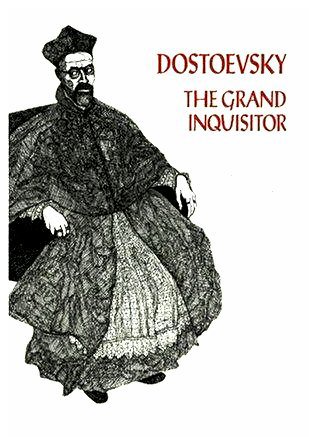Muslims love Jesus as much as Christians do
By John Casey, Daliy Telegraph 19-12-2001
 I always assumed that Jesus was a marginal figure in the Muslim world. How wrong this assumption was I have learnt by reading a fascinating and instructive book, The Muslim Jesus, by the Cambridge academic Tarif Khalidi.
I always assumed that Jesus was a marginal figure in the Muslim world. How wrong this assumption was I have learnt by reading a fascinating and instructive book, The Muslim Jesus, by the Cambridge academic Tarif Khalidi.
Professor Khalidi has brought together, from a vast range of sources, most of the stories, sayings and traditions of Jesus that are to be found in Muslim piety from the earliest times.
Many of the sayings of the Muslim Jesus are clearly derived from Biblical sources - "Place your treasures in heaven, for the heart of man is where his treasure is"; "Look at the birds coming and going! They neither reap nor plough, and God provides for them."
Sometimes there is a sort of gloss on words of Jesus from the Gospel: "Oh disciples, do not cast pearls before swine, for the swine can do nothing with them . . . wisdom is more precious than pearls and whoever rejects wisdom is worse than a swine."
I once had a conversation with members of Hizbollah in Beirut. One of them said this: "The greatness of Islam is that we combine Judaism and Christianity. Jesus freed enslaved hearts, he was able to release human feeling, to reveal a kingdom of peace. Jesus's realm was the realm of soul. Jesus is soul; Moses is mind, the mind of the legislator. In Islam, we interweave both."
This is certainly the Jesus of these stories - the Jesus of the mystical Sufi tradition. The great Muslim philosopher Al-Ghazali actually called Jesus "Prophet of the heart".
Jezus & de Groot-Inspecteur
President Khatami's Address to Seton Hall University
 Our call to Dialogue among Civilizations is an invitation to replace the discourse of violence and hostility with a discourse of mutual understanding and reason. Any dialogue among civilizations and cultures is incumbent upon taking into consideration the most fundamental cultural and civilizational element, that is religion, beyond historical prejudice and fanaticism.
Our call to Dialogue among Civilizations is an invitation to replace the discourse of violence and hostility with a discourse of mutual understanding and reason. Any dialogue among civilizations and cultures is incumbent upon taking into consideration the most fundamental cultural and civilizational element, that is religion, beyond historical prejudice and fanaticism.
In such a dialogue, we should emphasize bright points of essential concordance, and leave aside divisive issues, which derive not from the essence of religions but only from historical factional conditions and only when fanaticism prevails over fairness.
Leaders, scholars and thinkers in our world today play a key role in nurturing the common human yearning for truth, understanding and compassion, and in freeing us all from historically conditioned prejudice.
One cannot but wonder in bewilderment at the insurmountable gap between Jesus Christ who was all for love, beauty, freedom and compassion on the one hand, and the appalling character of a cardinal who sides with Satan and whom Dostoyevsky mockingly calls "the Chief Inspector" in his Brothers Karamazov. (Seton Hall University Website)
The Brothers Karamazov
Mennonites Website
 Fyodor Dostoyevsky, in his famous novel The Brothers Karamazov, gives a powerful portrayal of the distinctiveness of Jesus’ way of loving. In an extended parable of the “Grand Inquisitor” within the novel, Dostoyevsky tells of Jesus’ appearance in Spain in the late Middle Ages at the height of the Great Inquisition, when the church was cracking down on “heretical” Christians and Jews, putting hundreds of the unorthodox to death.
Fyodor Dostoyevsky, in his famous novel The Brothers Karamazov, gives a powerful portrayal of the distinctiveness of Jesus’ way of loving. In an extended parable of the “Grand Inquisitor” within the novel, Dostoyevsky tells of Jesus’ appearance in Spain in the late Middle Ages at the height of the Great Inquisition, when the church was cracking down on “heretical” Christians and Jews, putting hundreds of the unorthodox to death.
Jesus circulates among the poor, fearful, and suffering masses, offering compassion, healing, unconditional mercy, and acceptance. He does not say much, but people recognize him and soon crowds follow him and marvel at his kindness. The Cardinal, who is the Grand Inquisitor, observes Jesus and immediately has him arrested and taken away.
The Grand Inquisitor then challenges Jesus, accusing him of not having genuinely loved humankind. The Inquisitor bases his accusation on Jesus resisting the three temptations of the devil in the wilderness at the beginning of his ministry.
According to the Inquisitor, if Jesus genuinely loved humankind, he would have taken that opportunity to make the largest possible number of people happy. He would have turned the stones into bread to feed the hungry. He would have come down from the cross in order to captivate humankind’s conscience. He would have organized humankind into a single, harmonious ant colony in order to relieve our loneliness.
The Grand Inquisitor, of course, is not truly concerned with humankind’s well-being. In actuality, he harbors a secret contempt for human nature and human possibilities.
Critic James Breech writes, “He loves humankind in general because he hates his concrete neighbor”—the actual individuals he has to deal with face-to-face.